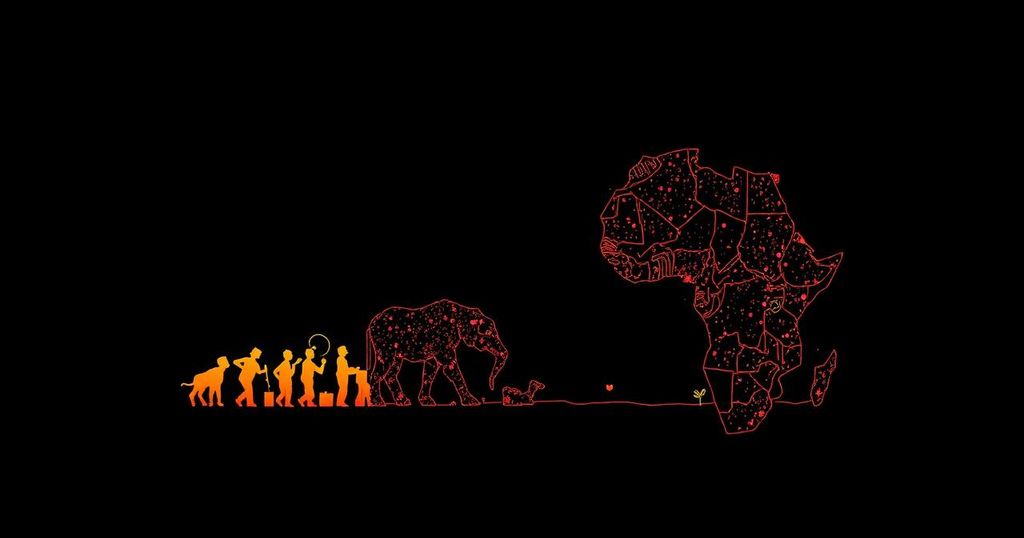Humanitarian Crises Unfold as Sudan and Chad Face Flooding; Lesotho Grapples with Drought

Sudan and Chad have reported severe flooding affecting hundreds of thousands, worsening humanitarian crises and health risks. Lesotho, contrastingly, faces a national disaster due to drought impacting food security for 700,000 people. Immediate aid efforts are underway across these nations, with increased funding from the UN to address the crises.
The latest reports from the United Nations indicate that both Sudan and Chad are currently experiencing significant flooding, adversely affecting vast populations and exacerbating existing humanitarian crises. Since late June, heavy rainfall has impacted nearly half a million individuals in various states across Sudan, including South Darfur, the Red Sea, River Nile, and Northern states. Stephane Dujarric, the chief spokesperson for UN Secretary-General Antonio Guterres, noted that the flooding has severely aggravated the humanitarian situation, particularly in areas like El Fasher where approximately 124,000 people have been affected. Furthermore, the incidence of diseases, notably cholera with nearly 2,900 suspected cases reported since mid-August, is increasing due to stagnant water and flooding. Humanitarian organizations are responding with emergency supplies, including life-saving therapeutic food for malnourished children in South Darfur. In Chad, the flooding crisis continues to escalate, leading to at least 340 fatalities and impacting nearly 1.5 million residents. With more than 160,000 houses destroyed, the floods are critically undermining agricultural production, resulting in acute hunger affecting over 3.4 million individuals. In response to this dire situation, Acting UN Emergency Relief Coordinator Joyce Msuya has raised support from the Central Emergency Response Fund from $5 million to $8 million to bolster aid efforts. Meanwhile, Lesotho is grappling with a severe drought, declared a national disaster as a result of El Niño conditions. The Lesotho government has reported that around 700,000 people are confronting hunger as agricultural output has diminished significantly. In light of this pressing issue, $2 million has been allocated from the Central Emergency Response Fund for drought-related relief, with calls for increased international assistance following an assessment visit by Assistant Secretary-General Reena Ghelani.
The humanitarian crises in Sudan and Chad stem from severe flooding caused by unusually heavy rains, while Lesotho faces a contrasting challenge of severe drought attributed to climate patterns such as El Niño. Sudan’s flooding has compounded the risk of famine and disease, worsening the living conditions of those already vulnerable. In Chad, the floods have not only claimed lives but have also devastated homes and agricultural resources, making food insecurity a critical concern. Lesotho’s situation highlights the fragility of food security in regions affected by climate variations, emphasizing the importance of both immediate humanitarian response and long-term strategies for resilience against climate-related disasters.
In summary, the devastating effects of flooding in Sudan and Chad pose significant threats to public health and food security, with immediate interventions underway by the United Nations and humanitarian agencies. Meanwhile, Lesotho’s drought underscores the challenges posed by climate change to agriculture and food security. There is a pressing need for sustained international support to address these urgent humanitarian crises and improve resilience against future climate-related events.
Original Source: news.cgtn.com







